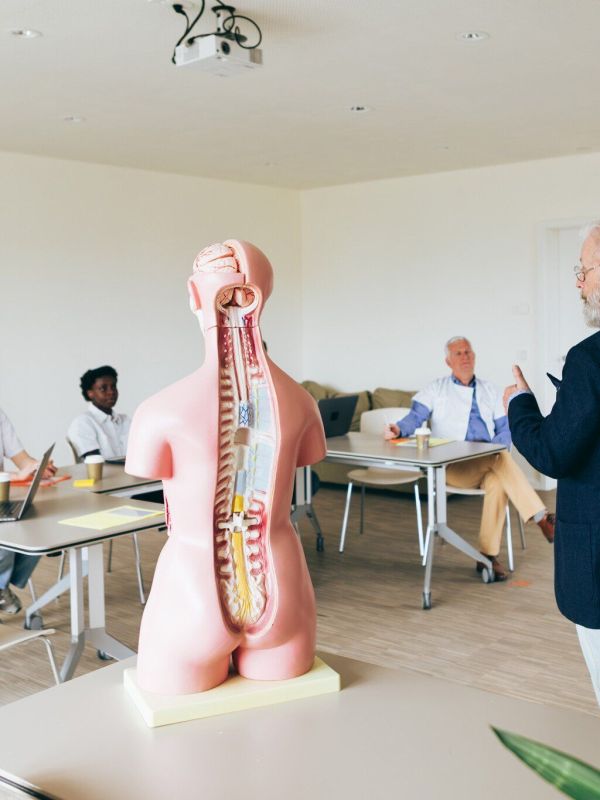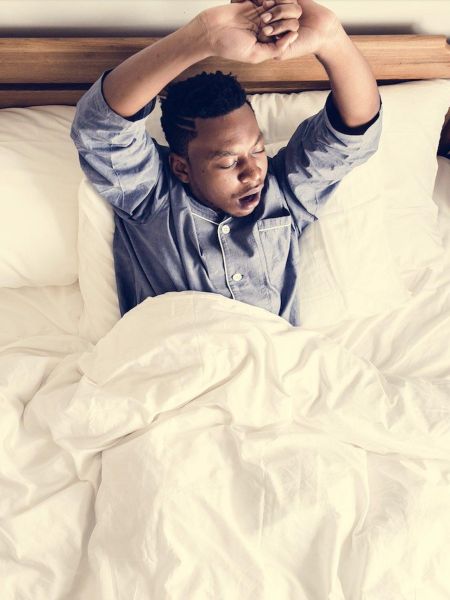PMDD: Facts, Symptoms, and Treatments
We've all heard PMS, but most of us aren't familiar with PMDD. PMDD is a relatively common condition that affects 5 to 8% of menstruating women. It's impact can be cataclysmic. Read on if you think you or someone you love might have PMDD.
Most everyone, regardless of sex, knows what Premenstrual Syndrome (PMS) is. If you're a woman, it's something you've likely experienced, and let's face it — an unfortunate circumstance of being assigned female at birth. On the flip side, most people have never heard of Premenstrual Dysphoric Disorder (PMDD).
PMDD is something that everyone should be aware of, so symptoms can be recognized and the appropriate support and treatment provided.
Premenstrual Dysphoric Disorder (PMDD), often referred to as severe premenstrual syndrome, is a complex and debilitating condition that affects a significant number of individuals who menstruate says the International Association for Premenstrual Disorders (IAPMD). Think of it as PMS on steroids.
PMDD can be quite literally — hell. However, there is hope! Understanding PMDD is crucial for those affected and those that surround them, as it can drastically, and negatively impact daily life and overall well-being.
The goal of this article is to provide information, support, and resources to anyone affected by PMDD. It is based on a compilation of research, primarily from the IAPMD and leading experts in this field.
You are not defined by your PMDD. You deserve to live a happy, healthy life and it is possible to do so even with this diagnosis.
Understanding PMDD
PMDD is classified as a cyclical, hormone-based mood disorder. A common misconception is that it's a hormonal imbalance, which is not the case.
The IAPMD says, symptoms typically arise during the premenstrual, or luteal phase, of the menstrual cycle and subside within a few days after menstruation begins. Unlike a hormonal imbalance, PMDD is a suspected cellular disorder in the brain. It is directly linked to the natural hormonal changes in the menstrual cycle, primarily the fluctuations of estrogen and progesterone.
How PMDD Differs from PMS
Premenstrual syndrome (PMS) affects 80% of women and AFAB (assigned female at birth) individuals, and includes a moderate range of physical and mild emotional symptoms occurring before menstruation, while PMDD is significantly more severe.
PMS may interfere with a woman's quality of life, interpersonal relationships, or ability to attend work or school, according to the American College of Obstetricians and Gynecologists.
However, PMS symptoms are generally more easily managed than PMDD and do not require prescription medication including antidepressants. PMS is also not classified as a mental illness in the Diagnostic and Statistical Manual of Mental Disorders, 5th Edition (DSM-5), while PMDD is.
PMS Characteristics:
Normal physical and mild emotional symptoms.
Symptoms occur in the week before menstruation.
Minimal impact on daily life.
PMDD Characteristics:
Severe emotional and sometimes physical symptoms, including depression, anxiety, mood swings, rejection sensitivity, and irritability.
Symptoms can start one to two weeks before menstruation.
Highly disruptive to daily life and relationships, often requiring medical management and prescription medications like antidepressants.
Symptoms and Impact
PMDD affects an estimated 5 to 8% of menstruating individuals, with symptoms appearing in the seven to fourteen days leading up to menstruation. The condition can worsen over time and around significant reproductive events such as the first period, pregnancy, childbirth, miscarriage, and perimenopause.
Those with PMDD have a neurobiological sensitivity to hormonal changes, indicating a different brain wiring rather than a hormonal imbalance.
Common Symptoms
John Hopkins Medicine says PMDD presents a wide range of symptoms, both physical and mental, with over 100 possible manifestations. Some of the most prevalent include:
Anxiety and exhaustion
Anger and irritability
Rejection sensitivity and drastic mood swings
Impulsiveness and insomnia
Brain fog and weight gain
Joint pain and reflux
Seriousness and Misdiagnosis
PMDD is often mistaken for other illnesses such as bipolar disorder or dismissed altogether. Its impact can be profound and life-threatening, with significant risks for suicide.
A global study by BMC Psychiatry found that up to 34% of individuals with PMDD have attempted suicide, 51% experience self-harm, and 87% have passive suicidal ideation. Additionally, 17% of subjects reported job loss, 57% lost partners, and 43% faced parenting issues due to PMDD.
Diagnosis and Classification
PMDD was officially recognized in the DSM-5 in 2013 as a depressive disorder and was added to the ICD-11 in 2019 as a disease of the genitourinary system. For a diagnosis, at least five symptoms must be present in the final week before menstruation, improve a few days after onset, and be minimal or absent in the week post-menstruation. Core emotional symptoms, such as marked depressed mood, anxiety, mood swings, and irritability, must be present.
Treatment Options
There is no one-size-fits-all treatment option for PMDD.
We recommend consulting a qualified medical specialist for an individualized approach if you think you or a loved one is struggling with PMDD.
The information below is aimed to be a guide and should not be used as an alternative to seeking medical advice, which should be sought before any action is taken.
IAPMD reports that many people find success with a combination of options. Some treatments may lessen symptoms or improve them greatly, while others may have no effect or worsen symptoms over time. Always consult with your medical team before stopping or starting any medications or treatments.
Medical Treatments
Dr. Nazanin E. Silver from the American College of Obstetricians and Gynecologists suggests that PMDD can often be managed by ob-gyns, who may refer patients to mental health professionals if needed. Treatments can include antidepressants, other medications, and as a last resort — surgery.
Natural, Over-the-Counter Remedies
Several homeopathic remedies are readily available and can help alleviate PMDD symptoms. Remember to consult a medical professional before trying any of these treatment options.
Aromatherapy: Reduces stress, improves sleep, and relieves pain.
Meditation: Helps manage stress and anxiety.
Warm Baths: Eases joint pain, muscle soreness, and stress.
Healthy Diet: Small, frequent meals, plenty of fruits and veggies, complex carbs, high-protein foods, cutting down salt, sugar, and caffeine, and completely avoiding alcohol. Alcohol will exasperate symptoms tenfold.
Exercise: Although it has not been well studied for PMDD, a wealth of evidence concludes that aerobic physical activity, such as walking, swimming, or biking, tends to improve mood and energy levels.
A Note Regarding Supplements and Adaptogens
Please note this information is for educational purposes only and not a substitute for medical advice. If you are facing hormonal issues, irregular cycles, or a recent diagnosis, it is best to speak with a health professional before starting any supplements or adaptogens.
Just like prescription medication, supplements, and adaptogens are powerful substances that have cautions and contraindications. Some examples of these contraindications include: Ashwagandha — a nightshade which may be problematic in someone with a nightshade intolerance, Rhodiola — shouldn't be taken without supervision if you have a history of bipolar disorder or depression, Vitex — shouldn't be taken under age 20 as hypothalamic-pituitary-ovarian axis is still maturing or used to treat Poly-cystic-ovarian syndrome (PCOS).
Conclusion
While there is no cure for PMDD, various support and treatment options exist and you can start the journey of feeling better today!
Increasing awareness and funding research is essential to help millions of individuals suffering silently. Opening conversations about PMDD can lead to better understanding, management, and support for those affected. We can continue to validate PMDD as a legitimate medical condition and work towards better treatments and support systems for those in need.
Remember, there is no singular treatment option that works best for everyone. If you're struggling with PMDD, or know someone who is, consult with a medical professional, and try a combination of treatments to find the ones that work best for you. An individualized approach is going to have the most success. Don't let a PMDD diagnosis get you down. It is possible to live a happy, healthy life, full of vitality and longevity with PMDD. Acceptance is the first step to feeling your best, so you can move forward with intention, knowledge, and support.














